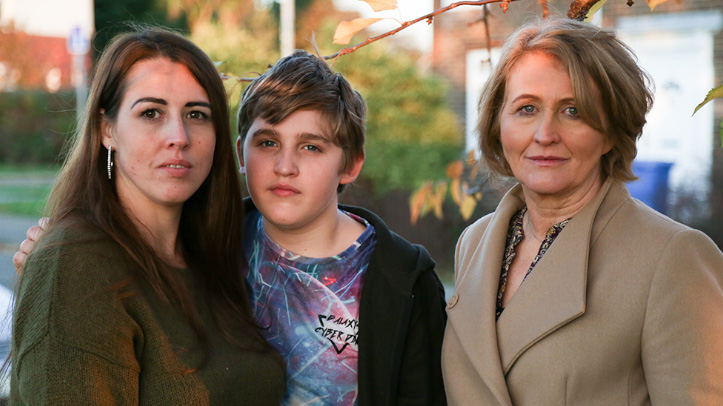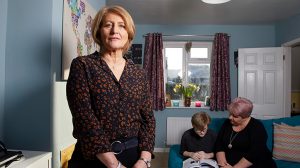
Anne Longfield, the Children’s Commissioner for England, has today (Monday) published a report, shining a light on the increasing number of children who are being educated at home. The report accompanies a Channel 4 Dispatches documentary “Skipping School: Britain’s Invisible Kids”, presented by Anne Longfield, which will air tonight (Monday).
The Children’s Commissioner’s report notes that while there are many parents who make a positive philosophical choice to educate their children at home, and do an excellent job, this is not always the case. There are tens of thousands of children in England receiving no school education. Many of them are ‘off-grid’, invisible to local authorities.
In tonight’s Dispatches documentary, Anne Longfield visits different families who are home-schooling their children, ranging from parents who have made a positive choice to home-educate and are doing well, to families who have felt they have had no choice but to home-educate and are struggling without help.
Following these investigations and research in the Commissioner’s report, the Children’s Commissioner is now calling for a compulsory home education register, stronger measures to tackle ‘off-rolling’, more support for families who home educate, a greater oversight of home schooled children and decisive action against unregistered schools. Later this year, the Children’s Commissioner’s Office will also collect data from all councils in England and publish it, school by school, identifying which schools have high numbers of children being withdrawn into home education which may suggest practices of off-rolling.
Some of the findings in the Children’s Commissioner’s published report include:
- In 2018 there were almost 60,000 children in England being home educated at any one time, although the precise figure remains unknown because parents do not have to register home-educated children. There could be as many as 80,000 children educated at home at some point in the year.
- Some children are completely out of sight of the authorities and ‘off the grid’ – with ADCS/Dispatches research showing 93% of councils say they are not aware of all the children in their area who are home educated. When local authorities offer to visit a home educating family, in 28% of cases the family refuses.
- The number of children who are known by councils to be home educated was 27% higher in 2018 than in 2017. It has risen by 20% in each of the last five years – doubling since 2013/14.
- Research undertaken by Channel 4’s Dispatches suggests 22% of the children withdrawn from school to be home-educated in 2017/18 had Special Educational Needs and that 9 out of 10 local authorities say they are worried about the ‘off-rolling’ of pupils. 92% of councils do not feel they have enough powers to assure the safety of home-educated children.
- Across the local authorities studied by the Children’s Commissioner, from 2015/16 to 2017/18 there was a 32% increase in the number of primary school children moving from school to home education, alongside a 71% increase in secondary schools.
- A very small number of schools are responsible for the majority of moves into home education. Nine out of ten schools saw no more than two referrals into home education a year, but for a minority of schools it can be more than 15 a year.
- The analysis by the Children’s Commissioner’s Office of 11 local areas shows a 48% rise in the number of children withdrawn from schools into home education between 2015/16 and 2017/18. In Hackney it was 94% and in Newham 176%. Between 2016/17 and 2017/18, Hackney’s academies saw an increase in children moving into home education of 238%.
Anne Longfield, the Children’s Commissioner for England, said:
“Our investigations have revealed thousands of children are ‘off the grid’ because they are being home schooled. The numbers are rocketing and no-one knows how they are doing academically or even if they’re safe. Many are being off-rolled. It also seems that a relatively small number of schools may be responsible for this sharp rise in children leaving school for ‘home education’ in this way.
“Many parents who make a philosophical decision to home educate provide their children with a high quality education. But there are many other families who have ended up home educating for other reasons, and are struggling to cope. Many of these children are very vulnerable, have Special Educational Needs, or are unable to cope with a ‘one size fits all’ school system. Schools should be for all children, including those with complex needs and those who struggle academically.
“We need to know who these children are, where they are, whether they are safe and if they are getting the education they need to succeed in life. There is a clear case for the Government to introduce a compulsory register for all home-educated children, without delay.”
View the report ‘Skipping School: Invisible Children’
Photo courtesy of Daniel Harrison / Blakeway North






